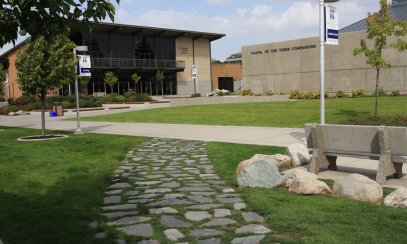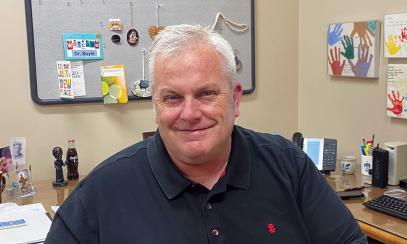
Going Classical
St. Charles on Spokane’s northwest side moves to a Classical Liberal Arts Curriculum
St. Charles on Spokane’s northwest side moves to a Classical Liberal Arts Curriculum
St. Charles Catholic School in northwest Spokane adds its name to a growing list of Catholic Schools across the country that seek to find a renewal through an embrace of a classical liberal arts educational model. St. Charles sits in a part of the Spokane metro area that is filled with Catholic schools. Within a few minutes’ drive from St. Charles, you can be at Assumption, St. Thomas More, or even Trinity Catholic School. With so many Catholic Schools on Spokane’s northwest side, the question for each school is often, “what sets us apart?”
St. Charles’ decision to embrace a classical liberal arts model follows a proven track record of schools making the same leap. In Denver, Colorado, Our Lady of Lourdes School had only 104 students enrolled when it decided to switch to a classical curriculum. The following year, enrollment increased to 180 and the growth has continued. In the fall of 2018, Lourdes opened a second campus.
St. Monica on Mercer Island, here in Washington state, has similarly made a switch in recent years and found the model effective in attracting students to the school.
St. Charles’ move to classical was not predetermined; the school has had several pastors and principals over the last few years. In 2019, the school welcomed a new leadership team, featuring Father Esteban Soler and Principal Heather Schlaich. Both were looking for a path forward for the school that would provide the stability the school and parish were looking for.
Father Soler grew up in Argentina and was himself classically educated from 6th grade through high school. With this background, Father Soler said he “has a heart” for classical liberal education and for the humanities. For Schlaich, the move to classical came about as a result of many factors.
“In doing our research, we found it is an idea that is spreading nationwide,” she said. It is revitalizing schools that are transitioning to the classical liberal arts or classical education. Knowing that we needed something new and exciting in our community, and knowing that there is a need to fill because there isn’t a Catholic elementary school that is classical in Spokane, we felt this is a niche we could fill.”
For many who are not familiar with it, the idea of classical education can seem mysterious. Schlaich said there is a simple way to define the underlying principle of classical liberal arts education: “I would describe it as an integration of subjects with the faith.”
Explaining further, Father Soler stressed the unity of the curriculum, all subjects are rooted in faith and in the Catholic vision that all truth comes from God. “The curriculum is oriented to help the kids to grow in a coherent base, where everything is understood as a whole, before they can go to different specifications.”
A classical education can seem old-fashioned to many, and in a way, it is. The roots of classical curriculum go right back to ancient Greece. The educational model continued to develop and was the form of education offered at most Catholic schools until the late 1800s. It is not stuck in the past though; technology is used where appropriate and the curriculum meets current educational standards.
What about Latin? The students at St. Charles will learn Latin, starting in Kindergarten. The study of one or more of the classical languages, Greek or Latin, is a hallmark of classical schools. Schlaich said that compared to a typical secular, modern school, the focus of a classical school is on “cultivating wisdom and virtue.” The school does this by “teaching the students Latin, exposing them to high quality literature, and focusing on appreciation of beauty, goodness, and truth.” Father Soler will teach the students Latin, having an extensive background in Latin himself, studying the language for 10 years both in Argentina and in Rome.
After the change was announced in the spring of 2020, those in the school community had many questions. Father Soler noted, “I have had a lot of positive feedback, [but] there is anxiety in some people, I would say, because it is a change, and there is anxiety with any change.” Both Fr. Soler and Schlaich met with families to explain the changes, and while many families are supportive, some have decided to move schools.
Heather Morrisson, a parent of St. Charles’ students said she is excited for the change in curriculum. “I love that we are integrating religion into every aspect of the curriculum and I like that we are encouraging critical thinking in the students.”
Schlaich said the response from teachers has been enthusiastic.
“Our teachers are very loyal, and they are excited we have plan,” she said. “They are excited we are going to be digging deeper, deeper meanings.”
Father Soler said he is looking forward to the adventure of undertaking this change, noting, “We will be the only Catholic school in the area – not in the state because we have St. Monica on Mercer Island, and there are other schools in the Seattle area looking to make the change – but we will be the only one in the area to make the change.”
Looking to the future, both Father Soler and Schlaich are hopeful about the transition. They look forward to serving their existing families and those families that have not found the right niche among existing Catholic schools. “I’m hoping we meet that need and get more kids into Catholic school,” Schlaich said.
“We are excited,” Father Soler said. “It is a challenge, but overall, I think it will be good. I think it will attract families who are not served by Catholic schools now. The school is part of the life of the parish. The mission of the parish, like every Catholic parish, is to evangelize. I hope the school will help bring the students to a deeper knowledge of Christ.


